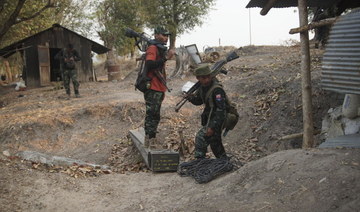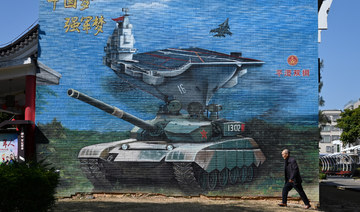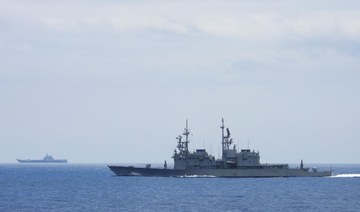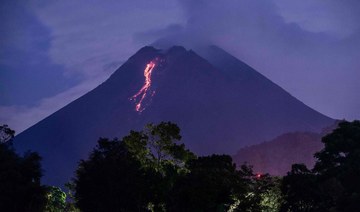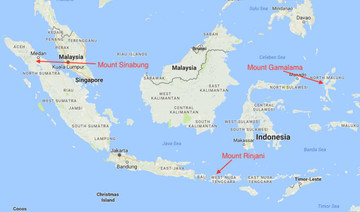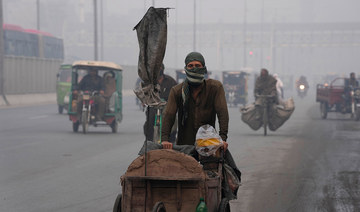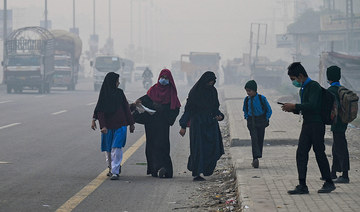NEW DELHI: India plans to push back against “agenda-driven,” “neo-colonial” country rankings produced by global agencies on topics like governance and press freedom, a key advisor to Indian Prime Minister Narendra Modi told Reuters in an interview on Friday.
Sanjeev Sanyal, a member of Modi’s Economic Advisory Council, said India has begun to raise this issue at global forums. He said the indices were being compiled by a “tiny group of think-tanks in the North Atlantic,” sponsored by three or four funding agencies that are “driving a real-world agenda.”
“It is not just narrative building in some diffused way. This has clear direct impact on trade, investment and other activities,” Sanyal said.
India ranked lower than Afghanistan and Pakistan in the new World Press Freedom Index released by Reporters Without Borders. It was below Pakistan and Bhutan in an academic freedom index by V-Dem Institute.
Over the past year, India has in various meetings pointed out the flaws in methods used to compile global indices used by institutions like the World Bank, World Economic Forum (WEF) and the United Nations Development Program (UNDP), Sanyal said.
The “World Bank is involved in this discussion because it takes these opinions from these think-tanks and effectively sanctifies it by putting it into something called the world governance index,” Sanyal said.
The World Bank, WEF, Reporters Without Borders and V-DEM Institute did not immediately respond to requests for comment. UNDP said it would respond shortly.
Sanyal said the ratings also get hard-wired into decision-making through environmental, social and governance (ESG) norms and sovereign ratings. Multilateral development banks offer subsidized loans to ESG-compliant projects.
“The idea of having some ESG norms is not the problem in itself. The problem relates to how these norms are defined and who certifies or measures compliance to these norms,” he said. “As things are currently evolving, developing countries have been completely left out of the conversation.”
The matter is being taken up by the Cabinet Secretariat, which has held more than a dozen meetings on the issue this year, a government official said. The Cabinet Secretariat and finance ministry did not immediately respond to requests for comment.
India has said it plans to be an advocate for developing countries under its G20 presidency. Sanyal did not say if India has flagged the issue of country rankings with the G20.
“There are other developing countries who are also concerned about this because effectively this is a form of neo-colonialism,” he said, adding that concerned ministries have been asked to establish benchmarks and engage continuously with ratings agencies.
Some of the upcoming indices being watched out by India are financial development index by International Monetary Fund, gender inequality and human development indices by UNDP, logistics performance and worldwide governance indicators by the World Bank, sources said.
India to push back against ‘agenda-driven’ global ranking firms — Modi advisor
https://arab.news/9ew4m
India to push back against ‘agenda-driven’ global ranking firms — Modi advisor
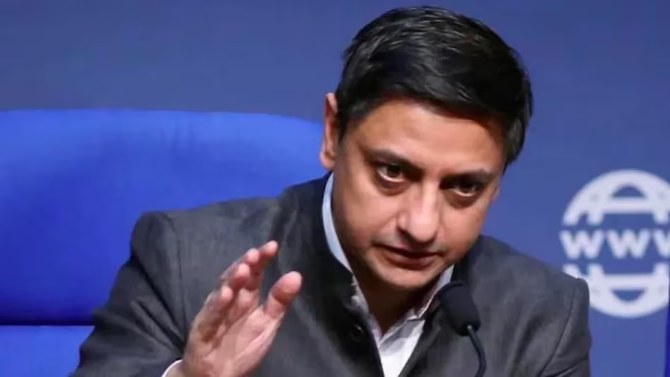
- India ranked lower than Afghanistan and Pakistan in a press freedom index released by Reporters Without Borders
- It also fell below Pakistan and Bhutan in an academic freedom index by an independent institute based in Sweden
AI’s relentless rise gives journalists tough choices

- AI tools imitating human intelligence are used to transcribe sound files, summarize texts and translate
- Columbia University teacher says collaborating with AI “tempting” in the face of increasingly right media resources
PERUGIA, Italy: The rise of artificial intelligence has forced an increasing number of journalists to grapple with the ethical and editorial challenges posed by the rapidly expanding technology.
AI’s role in assisting newsrooms or transforming them completely was among the questions raised at the International Journalism Festival in the Italian city of Perugia that closes on Sunday.
AI tools imitating human intelligence are widely used in newsrooms around the world to transcribe sound files, summarize texts and translate.
In early 2023, Germany’s Axel Springer group announced it was cutting jobs at the Bild and Die Welt newspapers, saying AI could now “replace” some of its journalists.
Generative AI — capable of producing text and images following a simple request in everyday language — has been opening new frontiers as well as raising concerns for a year and a half.
One issue is that voices and faces can now be cloned to produce a podcast or present news on television. Last year, Filipino website Rappler created a brand aimed at young audiences by converting its long articles into comics, graphics and even videos.
Media professionals agree that their trade must now focus on tasks offering the greatest “added value.”
“You’re the one who is doing the real stuff” and “the tools that we produce will be an assistant to you,” Google News general manager Shailesh Prakash told the festival in Perugia.
The costs of generative AI have plummeted since ChatGPT burst onto the scene in late 2022, with the tool designed by US start-up OpenAI now accessible to smaller newsrooms.
Colombian investigative outlet Cuestion Publica has harnessed engineers to develop a tool that can delve into its archives and find relevant background information in the event of breaking news.
But many media organizations are not making their language models, which are at the core of AI interfaces, said University of Amsterdam professor Natali Helberger. They are needed for “safe and trustworthy technology,” he stressed.
According to one estimate last year by Everypixel Journal, AI has created as many images in one year as photography in 150 years.
That has raised serious questions about how news can be fished out of the tidal wave of content, including deepfakes.
Media and tech organizations are teaming up to tackle the threat, notably through the Coalition for Content Provenance and Authenticity, which seeks to set common standards.
“The core of our job is news gathering, on-the-ground reporting,” said Sophie Huet, recently appointed to become global news director for editorial innovation and artificial intelligence at Agence France-Presse.
“We’ll rely for a while on human reporters,” she added, although that might be with the help of artificial intelligence.
Media rights watchdog Reporters Without Borders, which has expanded its media rights brief to defending trustworthy news, launched the Paris Charter on AI and journalism late last year.
“One of the things I really liked about the Paris Charter was the emphasis on transparency,” said Anya Schiffrin, a lecturer on global media, innovation and human rights at Columbia University in the United States.
“To what extent will publishers have to disclose when they are using generative IA?“
Olle Zachrison, head of AI and news strategy at public broadcaster Swedish Radio, said there was “a serious debate going on: should you mark out AI content or should people trust your brand?“
Regulation remains in its infancy in the face of a constantly evolving technology.
In March, the European Parliament adopted a framework law aiming to regulate AI models without holding back innovation, while guidelines and charters are increasingly common in newsrooms.
AI editorial guidelines are updated every three months at India’s Quintillion Media, said its boss Ritu Kapur.
None of the organization’s articles can be written by AI and the images it generates cannot represent real life.
AI models feed off data, but their thirst for the vital commodity has raised hackles among providers.
In December, the New York Times sued OpenAI and its main investor Microsoft for violation of copyright.
In contrast, other media organizations have struck deals with OpenAI: Axel Springer, US news agency AP, French daily Le Monde and Spanish group Prisa Media whose titles include El Pais and AS newspapers.
With resources tight in the media industry, collaborating with the new technology is tempting, explained Emily Bell, a professor at Columbia University’s journalism school.
She senses a growing external pressure to “Get on board, don’t miss the train.”
Fighting flares at Myanmar-Thai border as rebels target stranded junta troops
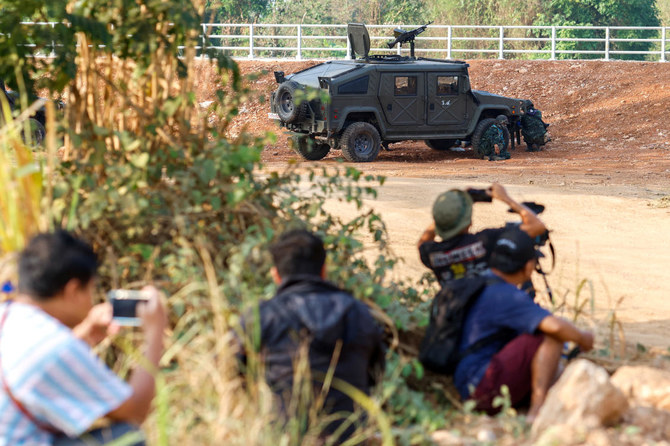
- Resistance fighters and ethnic minority rebels seized the key trading town of Myawaddy on the Myanmar side of the frontier on April 11
Fighting raged at Myanmar’s eastern frontier with Thailand on Saturday, witnesses, media and Thailand’s government said, forcing about 200 civilians to flee as rebels pressed to flush out junta troops holed up for days at a bridge border crossing.
Resistance fighters and ethnic minority rebels seized the key trading town of Myawaddy on the Myanmar side of the frontier on April 11, dealing a big blow to a well-equipped military that is struggling to govern and is now facing a critical test of its battlefield credibility.
Three witnesses on the Thai and Myanmar sides of the border said they heard explosions and heavy machine gun fire near a strategic bridge from late on Friday that continued into early Saturday.
Several Thai media outlets said about 200 people had crossed the border to seek temporary refuge in Thailand.
Thai broadcaster NBT in a post on social media platform X said resistance forces used 40-milimeter machine guns and dropped 20 bombs from drones to target an estimated 200 junta soldiers who had retreated from a coordinated rebel assault on Myawaddy and army posts since April 5.
Reuters could not immediately verify the reports and a Myanmar junta spokesperson could not immediately be reached for comment.
Thai Prime Minister Srettha Thavisin said he was closely monitoring the unrest and his country was ready to provide humanitarian assistance if necessary.
“I do not desire to see any such clashes have any impact on the territorial integrity of Thailand and we are ready to protect our borders and the safety of our people,” he said on X. He made no mention of refugees.
BIG SETBACK
Myanmar’s military is facing its biggest challenge since first taking control of the former British colony in 1962, caught up in multiple, low-intensity conflicts and grappling to stabilize an economy that has crumbled since a 2021 coup against Nobel laureate Aung San Suu Kyi’s government.
The country is locked in a civil war between the military on one side and, on the other, a loose alliance of established ethnic minority armies and a resistance movement born out of the junta’s bloody crackdown on anti-coup protests.
The capture of Myawaddy and surrounding army outposts is a significant setback for a junta that has been squeezed by Western sanctions, with the town a key tax revenue source and conduit for more than $1 billion of annual border trade.
The Khaosod newspaper in a post on X showed a video of Myanmar civilians, many of them women and children, being marshalled by Thai soldiers at an entry point to Thailand.
Thailand had on Friday said no refugees had entered the country and it was discussing with aid agencies about increasing humanitarian relief to civilians on the Myanmar side.
Taiwan’s defense ministry detects 21 Chinese military aircraft
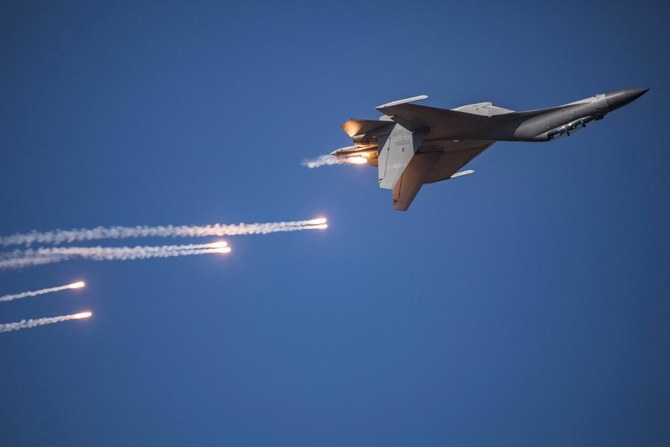
- The median line bisects the Taiwan Strait, a narrow 180-kilometer waterway separating the island from mainland China
TAIPEI: Taipei’s defense ministry said it had detected 21 Chinese military aircraft around the self-ruled island since 8:15 am (0015 GMT) on Saturday, a month before Taiwan’s May 20 inauguration of incoming president Lai Ching-te.
“17 aircraft (of the 21) crossed the median line and its extension, entered our northern, central, and southwestern (air defense identification zone), and joined PLA vessels for joint combat patrol,” it said in a statement posted on X around 11:30 am.
Taiwan’s armed forces “are monitoring the activities with our joint surveillance systems, and have dispatched appropriate assets to respond accordingly.”
The median line bisects the Taiwan Strait, a narrow 180-kilometer waterway separating the island from mainland China.
Beijing does not recognize the line as it claims democratic Taiwan as part of its territory. It has also never renounced the use of force to bring the island under its control.
China sends warplanes and naval vessels around Taiwan on a near daily basis — a move experts say is a form of “grey-zone harassment,” stopping short of an outright act of war but enough to exhaust Taipei’s armed forces.
According to the defense ministry, the 21 aerial objects detected Saturday included J-16 fighter jets and Y-8 medium-range transport aircraft, as well as drones.
The highest number around Taiwan so far this year was in March, when the ministry said 36 Chinese aircraft were detected in a single 24-hour period.
Last year’s record was in September when Beijing’s military sent 103 aircraft — 40 of which crossed the median line — in a 24-hour period.
Saturday’s show of force comes a day after China activated two aviation routes that run close to Taiwan’s outlying islands of Kinmen and Matsu.
Taipei’s Civil Aviation Administration expressed “solemn protest against China’s unilateral measures without consultation” on Friday.
The new routes make the airspace separation between the two sides “very narrow,” it said, increasing flight safety risks during bad weather or abnormal flight operations.
China’s aviation authority also said Friday the airspace around Fuzhou Changle Airport — 30 kilometers from the closest outlying Taiwanese island — would be “further optimized and adjusted” on May 16, four days before the inauguration.
Under the administration of Taiwanese President Tsai Ing-wen, tensions between Beijing and Taipei have ramped up, as she and her government do not acknowledge China’s claim.
Her deputy, Vice President Lai, won elections in January despite warnings from Beijing that he would be the cause of “war and decline” for Taiwan.
China regards Lai — who used to be outspoken about Taiwan independence — as a “dangerous separatist,” though he has moderated his views in recent years.
Hundreds of people evacuated as volcano spews clouds of ash in Indonesia
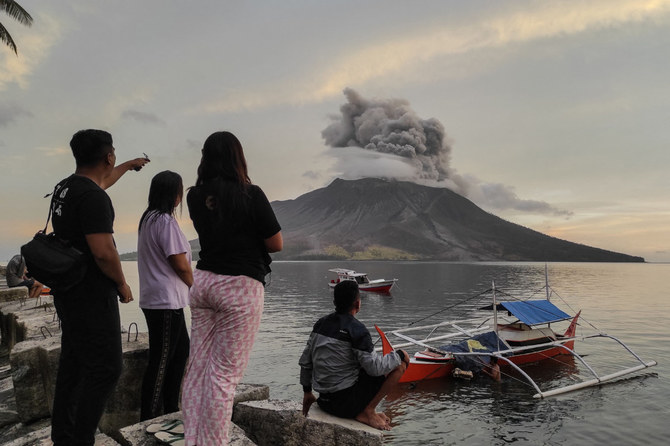
- Local authorities combed the villages surrounding the volcano and evacuated residents to safer areas by boat
- Officials worry that part of the volcano could collapse into the sea and cause a tsunami, as happened in an eruption there in 1871
MANADO, Indonesia: More than 2,100 people living near an erupting volcano on Indonesia’s Sulawesi Island were evacuated Friday due to the dangers of spreading ash, falling rocks, hot volcanic clouds and the possibility of a tsunami.
Indonesia’s Center for Volcanology and Geological Hazard Mitigation recorded at least three eruptions since Friday afternoon, with the maximum height of the eruption column reaching 1,200 meters (3,900 feet).
An international airport in Manado city, less than 100 kilometers (60 miles) from the erupting Mount Ruang, is still temporarily closed as volcanic ash was spewed into the air.
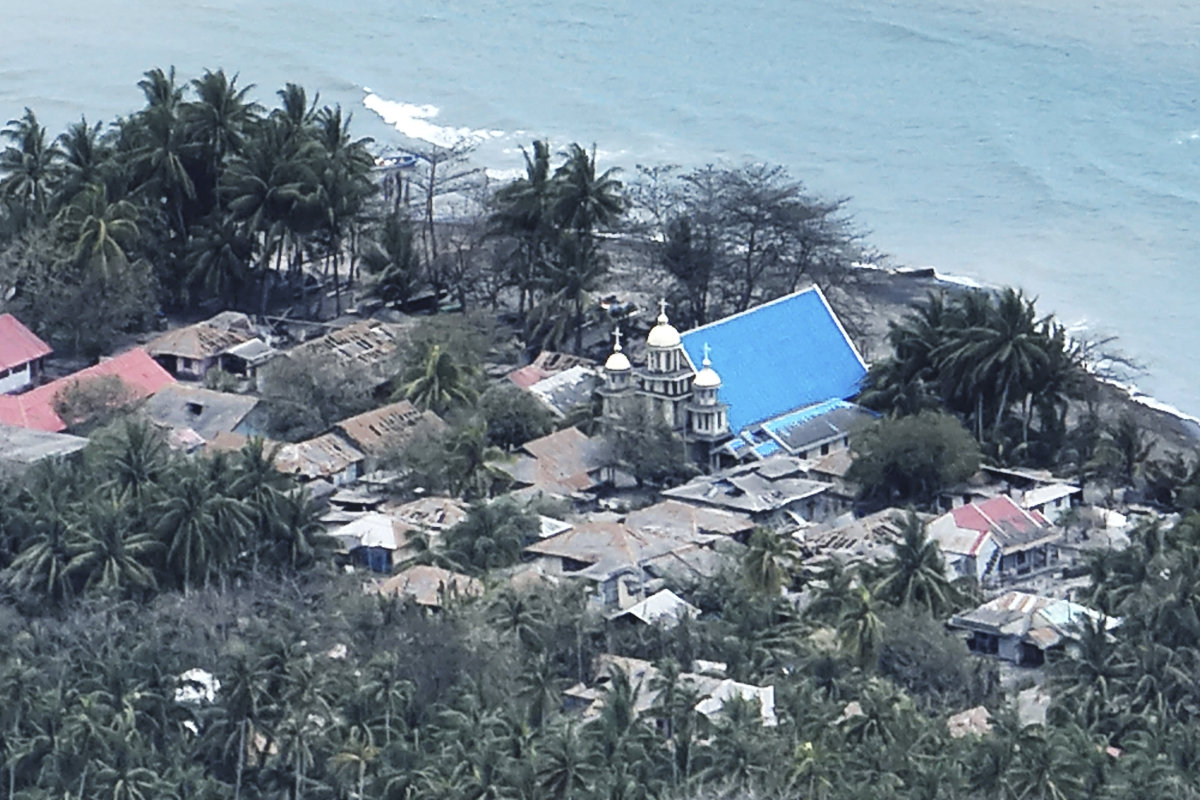
Satellite imagery from the Meteorology, Climatology and Geophysics Agency shows the ash has spread to the west, northwest, northeast and southeast, covering Manado and North Minahasa, according to a statement from Indonesia’s Transportation Ministry.
“We are still monitoring developments in the eruption of Mount Ruang and coordinating with relevant stakeholders … to anticipate the necessary actions to ensure flight safety, security and comfort,” said Ambar Suryoko, head of the regional airport authority.
More than 11,000 people were told to leave their homes that were located in the affected area. A joint team from the local authorities combed the villages surrounding the volcano and evacuated residents to safer areas by boat.
Officials worry that part of the volcano could collapse into the sea and cause a tsunami, as happened in an eruption there in 1871.
Houses, roads and other buildings were covered by gray volcanic ash, and many roofs were broken by debris spewed from the eruption.

Mount Ruang saw at least five large eruptions Wednesday, causing the Center for Volcanology and Geological Hazard Mitigation to issue its highest level of alert. People were ordered to stay at least 6 kilometers (3.7 miles) from the 725-meter (2,378-foot) mountain.
The observation from the agency on Friday said white smoke was rising from the main crater with medium to thick intensity.
East of the volcano, Tagulandang Island could be at risk if a collapse occurred. Its residents were among those being told to evacuate. Indonesia’s National Disaster Mitigation Agency said residents would be relocated to Manado, a journey of 6 hours by boat.
Indonesia, an archipelago of 270 million people, has 120 active volcanoes. It is prone to volcanic activity because it sits along the “Ring of Fire,” a horseshoe-shaped series of seismic fault lines around the Pacific Ocean.
Finance firms urge ambitious action on plastic pollution

- Curtailing the estimated 400 million metric tonnes of waste produced every year is a crucial part of efforts to protect biodiversity, with microplastics found everywhere from the mountainous Himalayas to staple foods and even human blood
LONDON: A group of 160 financial companies on Friday urged governments to agree a treaty to end plastic pollution that would help spur private sector action, ahead of the next round of global talks in Canada.
The fourth meeting of the Intergovernmental Negotiating Committee on Plastic Pollution (INC-4) is due to be held in Ottawa next week to lay the groundwork for an eventual deal before the end of the year.
Curtailing the estimated 400 million metric tonnes of waste produced every year is a crucial part of efforts to protect biodiversity, with microplastics found everywhere from the mountainous Himalayas to staple foods and even human blood.
To help fix the problem, the finance firms, which include Britain’s biggest investor Legal & General Investment Management and Canadian pension investor CDPQ, called for a policy framework backed up by binding rules.
Among specific steps, the group called for the treaty to set an objective for all public and private finance to be consistent with the goal of eliminating plastic pollution, similar to that in the Paris climate agreement and the Kunming-Montreal global biodiversity framework.
It also called for companies to assess and disclose plastic-related risks and opportunities; clearer plastic-related policies and targets from governments in areas like waste creating and recycling; and for further private investment to be directed to ending plastic pollution.
“A clear transition pathway laid out in the Treaty will help leverage finance at scale for this massive task of ending plastic pollution worldwide,” said Anne-Sophie Castelnau, global head of sustainability at ING, one of the signatories.
Steve Hardman, CEO of Plastic Collective, an NGO which designed the world’s first plastic waste reduction bond alongside Citi and the World Bank, welcomed the support but called for business to provide more financial solutions.
In January, the World Bank issued the $100 million bond to finance plastic-reduction projects in Ghana and Indonesia. Investors will be paid a rate linked to plastic removal credits generated by the projects.




